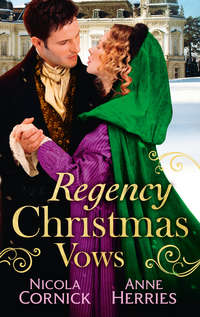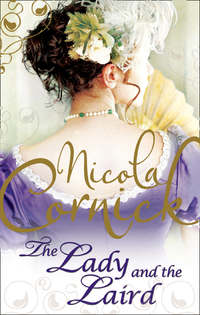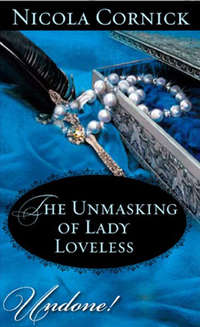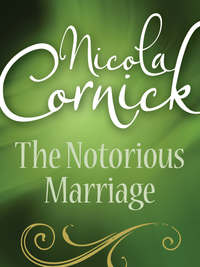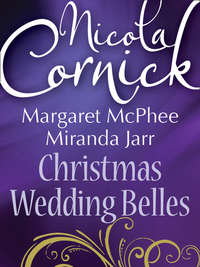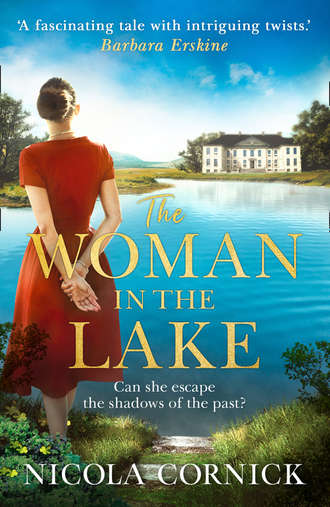
Полная версия
The Woman In The Lake: Can she escape the shadows of the past?
‘Then you’re going about it the wrong way,’ Fen said, ‘working late.’
He opened his eyes and smiled at her. Wow again. She blinked.
‘I suppose so,’ he said. ‘Hadn’t thought of that.’
‘What would you do if you were made redundant?’ Fen asked.
He thought about it for a moment. There was nothing rushed about him, nothing that wasn’t thoughtful and considered.
‘I’d go travelling,’ he said, after a moment, ‘and write about it.’
‘Nice.’
‘Nothing exotic,’ he continued. ‘Just local. It’s beautiful around here, you know?’ He waved a hand towards the blank train windows. ‘The river and the landscape, the water meadows, the hills…’
‘I’m not familiar with the countryside around here,’ Fen said. She remembered the view from the window earlier as she had travelled up; fields of honey-coloured corn in the sunlight, pale green hills, the curl of the river in the lazy haze. ‘I can see it can be beautiful,’ she said, ‘but what about all the bits in between – the railway sidings and industrial units and shopping parks?’
‘There’s always bits in between,’ he said. ‘Anyway,’ he settled his shoulders back against the seat, ‘it’s just a dream.’
There was silence again, the rattle of the train, the hum of the wheels on the line. They were slowing down into another station.
‘What about you?’ he asked.
She wanted to tell him that she didn’t want to talk about herself but it seemed too much effort. What about her? What was she now? Who was she? Fenella Brightwell, twenty-seven years old and starting her life over again…
‘I’m a writer.’ She chose a job at random, perhaps because she could still see the corner of the book sticking out of her bag. It didn’t matter what she said when she wasn’t going to see him again. Licence to lie was how she thought of it. Her past, her new beginning, gave her the right to pretend.
His eyes gleamed. She wasn’t sure whether he believed her but it didn’t matter.
‘That’s exciting. What sort of books do you write?’
‘Science fiction.’
‘Are you published?’
‘Yes.’
‘Does anyone beyond your family and friends actually buy your books?’
Fen smothered a laugh. Suddenly she was enjoying this.
‘Yes. Quite a few people.’
‘Are you a bestseller, then?’
This time she laughed aloud. ‘No, of course not.’
He raised his brows. ‘Lots of authors are.’
‘Proportionally few.’ She knew that; the world was flooded with books. Very few of them were by people anyone had heard of.
She noticed for the first time his crumpled but elegant suit and the expensive watch on his wrist. How awkward if he were a rich and successful author. He’d said something about writing about his travels. But he had also said he was hoping to be made redundant so he couldn’t be self-employed. He probably worked in IT. A lot of big companies were based in Reading. IT, or insurance or banking. Something boring. Something normal.
‘I’ll look out for your books,’ he said. ‘Do you write under your own name?’
‘No,’ Fen said. She hesitated, enough to give herself away. ‘My pen name is Julie Butler.’ Where the hell had that come from?
‘And your latest book?’ The gleam was back in his eyes. He knew she was making this up. ‘What’s that called?’
‘It’s called…’ She saw a hoarding flash past with an advertisement for moisturiser. ‘The Dove Flies Out.’
‘Intriguing.’ He smiled at her. ‘What’s it about?’
‘It’s set on a spaceship,’ Fen said. ‘A spaceship like an ark. They send the dove out when they get near a new planet, to see if it’s suitable for landing.’
‘Imaginative.’
More like imaginary, Fen thought. ‘Thanks,’ she said. ‘People usually say that when they think something sounds awful.’
‘I’ll look out for it when I’m next in town.’ He stood up and for one moment she thought he was going to shake hands but he didn’t. ‘This is my stop,’ he said. ‘It was nice to meet you, Julie Butler.’
‘You too,’ Fen said. She thought of the old days, the days before Jake. She would have asked for his number, or given him hers. They might have met up and had a drink. It would have been good to see him again. There was a connection there, a spark. But perhaps she had read too much into it. She wasn’t good at relationships.
The signs for Newbury slid past the train window. She watched him stroll down the carriage to the door, waiting with the cyclists, the late shoppers and the suits, standing back to let an elderly couple get to their feet. He turned and looked at her. Her gaze met his and she felt the connection between them again like a physical jolt. He walked back to where she sat.
‘In case we meet again,’ he said, ‘or in case we don’t, my name’s Hamish. Hamish Ross.’
‘Hamish,’ she repeated. ‘Well, it was good to talk to you.’
He smiled a last smile and raised a hand, and in that minute Fen realised where she had seen him before. He had been right when he had said that he thought he knew her. It hadn’t been a line.
He was Jessie’s older brother.
She opened her mouth to tell him but it was too late. The doors hissed shut behind him. She did not see him on the platform. There weren’t many people left in the carriage now and the night air from the open windows was making her feel cold. Ten minutes to Hungerford, then she had a half hour’s drive on empty country roads and then home. Not that the flat in Swindon Old Town was home yet. It was too recent and too impersonal.
The car park was deserted. She’d deliberately parked right under one of the huge, bright lights. She walked straight over to the car looking neither left nor right, feeling the cold night air on her face and blinking in the harsh light. Her keys were already in her hand; she slid into the driver’s seat, slammed the door, locked it and took a deep steadying breath. Safe.
She thought about Hamish Ross whilst she drove home. On reflection, she realised it was lucky she hadn’t told him about the link between them since she had also told him a tissue of lies. She tried to remember whether she had seen him at Jessie’s wedding. She thought not, but Jake had monopolised her attention that day. The last time she had spoken to him must have been when she and Jessie had been about fifteen and Hamish had been eighteen and about to go to university. He hadn’t taken much notice of her back in the days when she would go round to Jessie’s for tea. From a purely selfish point of view it was nice to know that she warranted more of his attention now. She hadn’t had a crush on him back then, not really. When you were stuck at an all girls’ school people’s brothers tended to be alien and exotic creatures, especially if they were older. Hamish had been… she searched her memory… nice, she thought, kind to Jessie in an absentminded sort of a way. Patient. He had helped them with their homework sometimes. He had not been so good-looking in those days, or at least she didn’t think so.
She wondered whether he was married. He hadn’t been wearing a ring but that meant nothing. Perhaps he was a player, like Jake had been, a man who hit on a different woman each night on the train home from work. She didn’t know. Although she’d seen Jessie quite a bit since she had come back to Swindon, her friend hadn’t mentioned her brother much. And since Jessie was called Jessie Madan now rather than Jessie Ross, it had taken a moment for the penny to drop.
Fen bit her lip. Damn. She had to hope that Jessie wouldn’t invite her to a party or something that Hamish would also attend. It would be awkward to try to explain how Fen Brightwell had morphed into the novelist Julie Butler. In fact it would be excruciatingly embarrassing. Still, it was unlikely to happen. Whilst Jessie had moved back to a village near Swindon and Hamish evidently lived in Newbury, they weren’t a family who were in each other’s pockets. They seemed fond enough of each other in a nice, mutually supportive way. They were so normal.
Fen sighed, narrowing her eyes against the glare of oncoming headlights, fighting the tiredness that snapped at her heels. She didn’t really know ‘normal’ that well. Her own family background was too fractured and as for her relationship with Jake, that had been so far from normal that there wasn’t a word for it.
She pulled onto the motorway. It was still busy with late night weekend traffic heading for the West Country. She only had one junction to go though. She stifled a yawn and turned on the radio to help her focus. A group of earnest people were talking about literary criticism. She turned it off. That was more likely to lull her to sleep than wake her up. Her sister Pepper was the bookish one with a first-class degree in Archaeology. Her eldest brother Jim was a high-achieving lawyer in Sydney and the younger one, Denzel, was a drifter last heard of surfing in San Diego. They were scattered in character and interests as much as in location, perhaps because they had all had such dislocated childhoods. It had not drawn them back together as adults.
Suddenly the orange haze of streetlights punctured the darkness up ahead and she took the exit, turning right towards Swindon, past the hospital and into upmarket suburbia, the big 1930s houses, the wide open spaces of the country park. After she had left Jake, she had relocated to Manchester and then to the Midlands but she had felt rootless and lost, so after eighteen months she had gone back to Swindon where she had grown up. It felt safe enough; she had not lived there for twelve years and had never told Jake anything about her childhood anyway. Besides, he was living abroad now and probably didn’t give a thought to where she was living or what she was doing. She had to try not to be paranoid. She didn’t want to spend all her life feeling hunted. If she thought about Jake constantly he would still dictate her life, he would have won. She was not going to allow that. Even so, she knew it was not that easy; so often he trod the edges of her mind like a ghost.
She slid the car down the narrow alleyway between the flats and the row of houses next door, a line of old cottages that tumbled down the hill towards the new town. As she turned into the entry, the arc of the headlights caught a man’s figure, stepping sideways into the shadows. She caught only the briefest flash of his features but it was enough.
Jake.
She slammed on the brakes and the car stalled, stranded half-in and half-out of the alley. Without conscious thought she threw open the door, so hard it scraped along the wall, and jumped out, running round the back of the car and out into the street. A horn blared, lights swerved. Someone swore at her but she barely noticed.
The street in both directions was empty. Only the faintest echo of receding footsteps came to her ears. Fen stood there irresolute for a moment then shook her head sharply. It could only have been her imagination. She had been thinking about Jake and so she thought she had seen him when she had not.
She restarted the car and drove around into the parking lot behind the flats, locked it, double-checked, and walked swiftly, head down, across to the entrance where she let herself in. Only when she was in the bright passage, with the door firmly shut behind her, did she allow herself to draw a breath. It had been her mind playing tricks. She told herself that, very firmly, and ignored the slight shaking of her hands.
Chapter 5

Isabella
Lydiard Park, Summer 1763
The clock on the stables was striking quarter past the hour of one as my carriage rattled into the coach yard at Lydiard Park. After so many miles the sudden cessation of noise and movement was shocking. The silence was loud, the stillness made me feel sick.
There was no light outside and no welcome. Not that I was expecting one. I had not sent ahead to warn the servants of our arrival. There had been no time.
The carriage swayed as the coachman jumped down. I wondered if he were as stiff as I, tired, filthy and bad tempered from travelling through the night. He had certainly driven like a man in a rage, sparing us nothing, which had made the journey all the more uncomfortable.
Constance stirred in her seat but she did not wake. Poor child, at the last change of horses she had looked so pale and hollow-eyed from exhaustion that I thought she might faint with the effort of carrying a cup of broth for me, and I made her drink it herself.
I pushed the window down. ‘Farrant! Drive around to the front. Do you expect me to walk?’
I heard him swear. I had suffered the coachman and groom’s snide disrespect all the way from London. How quickly the servants picked up on the mood of their master and acted accordingly. They all knew about Eustace’s treatment of me and so they thought that gave them licence to behave with insolence. But I was a Duke’s daughter; I knew how to deal with impertinent servants.
‘Ma’am—’ Tarrant’s surly response was interrupted as a wavering light appeared, a lantern held in the hand of a very young ostler who scuffed his way across the cobbles, yawning and rubbing his eyes. Behind him I saw the shadow of a cat slink away.
‘What’s to do?’ His Wiltshire burr was so thick I could scarcely make out the words. ‘Who calls at this time of night?’
‘It is my Lady Gerard.’ The coachman was peremptory, using my authority to bolster his own now it suited him. ‘Look sharp, lad, and send someone to wake the house, and fetch more men to help with the horses.’
‘There’s no one here but me.’ The poor lad sounded panicked, as though he did not know what to do first. I took pity on him, leaning from the window.
‘Farrant, open this door. I can announce myself at the house.’ Turning, I shook Constance awake gently. Her shoulder felt brittle beneath my hand and she turned her head against the velvet cushions of the seat as though for comfort.
‘Come, Constance,’ I said. ‘You are home.’
She opened sleep-dazed dark eyes and looked at me, waking suddenly, despite the care I had taken not to startle her.
‘Home? Lydiard? Oh, madam!’
She scrambled up and thrust the door wide, jumping down before the groom had stirred to come and help us. I smiled wryly to think that one of us at least was pleased to be here.
I had not been to Lydiard since the first year of my marriage. I had been happy enough then, although perhaps not as happy as I should have been as a new bride. Marriage had not been at all as I had imagined.
‘What on earth were you thinking, Bella?’ my sister Betty had asked bluntly when my betrothal was announced. ‘Were you drunk? Everyone says you must have been to accept Eustace Gerard.’
It was true that Eustace had proposed to me at Vauxhall Spring Gardens but I had been quite sober that night. It had been a whim, an impulse, I suppose. He had offered escape, or so I had thought, and I had been bored with my pattern card life as a young lady of the ton and had grasped after something different. In those days Eustace had made me laugh. He made no such efforts to amuse a wife. I drew my cloak a little closer about me. For all that this was July the air was chill and fresh out here in the country. It had a different quality to London.
The lad from the stables had run on ahead to raise the house whilst the groom and coachman dealt with the horses. By the time that Constance and I reached the door, there was a lantern flaring in the hall and Pound, the steward, was shrugging on his jacket and hurrying towards us, cross and flustered. His shirt flapped loose and his hair stood up at the back.
‘My lady!’ His gaze darted to my face and registered my bruises with the mere flick of an eyelid before he resorted to his true grievance. ‘We did not expect you! If you had told us—’
I raised a hand to stem the flow of reproach. I was too weary to hear him out. ‘It is of no consequence. All I require is my usual room made up and some hot water and a little food…’
He looked appalled. Such simple matters seemed impossible to achieve. For the first time I looked about the hall and saw what the darkness and lamplight had concealed: the cobwebs and dust, the filthy drapes. There was a smell of stale air and old candle wax. It was cold. Probably there were rats.
‘Surely,’ I said, my voice sharpening, ‘my lord pays you to maintain his house in an appropriate style even when he is not present?’
Pound’s face pursed up like a prune. ‘Had we known to expect you—’ he repeated.
‘You should always expect me. I do not have to give you notice of my whereabouts.’
‘No, my lady.’ His expression smoothed away into blandness but I knew that for all the outward show, he was annoyed. That, however, was not my concern.
Constance, looking from one of us to the other, stepped forward. ‘I can go to find some food and some hot water, milady,’ she said, ‘if Mr Pound can raise the housekeeper and see to your room.’
Constance was always the peacemaker. Probably Pound was some distant cousin of hers; she came from a village only a few miles distant and everyone in those parts was related to one another.
‘I’ll wait in the drawing room,’ I said. ‘Thank you, Constance.’
Pound’s gaze flickered between us, hard to read. He seemed surprised that I addressed Constance by her first name. It was not the custom but with a personal maid I always felt the need to be less formal. We were friends of a kind, after all. She dropped a curtsey and sped off towards the kitchen passage. Pound followed more slowly, adjusting his jacket and smoothing his hair for the housekeeper’s benefit if not for mine.
The drawing room was as unwelcoming as the hall. There was no light so I went back to the hall and took a branch of candles from the table by the door. From upstairs came the sound of voices raised in altercation. I had not met the Lydiard housekeeper and did not know her name but it seemed she had a fine pair of lungs even if she did not know how to keep house.
Pulling one of the covers off a chair I sat down and waited. Even with the candlelight the room looked sad and dark. Shrouded pictures of Eustace’s ancestors looked down their Gerard noses at me as though I, the daughter of a Duke, was not good enough to marry a mere Viscount. No light or warmth had penetrated here during the day and I thought I smelt damp plaster. The grand marble fireplace yawned cold and empty, full of the winter’s ashes. I wondered for a moment why I had come here, to the end of the world, and then I remembered. I remembered the golden gown, I remembered Eustace’s violence and I remembered that I planned to be revenged on him. Here, at Lydiard, I would settle the score.
Constance was the perfect accomplice. I knew she was Eustace’s spy. She had been from the moment he appointed her as my maid. They both thought I was unaware of it but I had known all along. It did not matter to me; she was useful in passing on the information I wished Eustace to receive and now I would use her to lure Eustace to Lydiard so that I could deal with him.
I think I must have fallen asleep where I sat, for when I woke, the candles had gone out and the room was full of darkness and silence. I felt cold, stiff and confused, my mind fogged with dreams. I stumbled to my feet, clumsily bumping into the corner of a table, reaching out to steady myself but touching nothing but thin air. Why had everyone left me alone in the dark? I felt both forlorn and furious at the same time.
A sliver of light showed in the corner of the room and I groped my way towards it. My fingers met the smooth panels of a door and the hard edge of the doorknob. I turned it and realised that I was in the little dressing room that lay in the north-east corner of the house, facing the church. Faint light fell through the window with its intricate painted diamond panes, suggesting that dawn was coming. I stood for a moment watching the strengthening light deepening the colours in the glass. I had loved that window from the first moment I had seen it. It had given me so many ideas for my drawing and painting; Eustace had laughingly said the room must become my studio.
But this was odd. If I was in the little dressing room then I could only have come through the door in the corner of the grand bedroom and not from the drawing room, where I had sat down and apparently fallen asleep… And now I looked about it, the room was much changed, painted in blue with a strange-looking desk all gold and black in the alcove, and on the walls were drawings, pastels and sketches in a hand I immediately recognised as my own.
Except that the pictures were unfamiliar, and their subjects and settings were completely unknown to me.
A long, cold shiver ran along my skin. I walked up to them to stare more closely. The room was as bright as day now but I had not noticed the change at once because I was too intent on the images on the wall. There was a charming pastel of a woman and a child holding hands and dancing, a drawing of three little rounded cupids sporting together and there, in the corner of the room, a pencil sketch of an elegant lady seated on a terrace with a little dog curled up on a cushion beside her.
There could be no mistake. I knew my own style and design as one does a hand so familiar that it is instinctive. I turned slowly to take them all in and saw a watercolour of a spray of flowers I had seen in a hedgerow in spring. I had taken a rough copy of them in my notebook and here they were in a painted panel, pale pink and white on blue, entwined with leaves, just as I had envisaged drawing them. There was china and porcelain adorned with the same sorts of patterns. And there, on the shiny black top of the desk, was a portrait framed in wood of a very pretty girl. It was signed with the initials I.A.C.B. I leaned closer to read the square piece of card beneath: ‘ A stipple engraving published by John Boydell in 1782 after Lady Isabella’s 1779 painting of her friend and cousin Lady Georgiana Cavendish.’
I sat down very abruptly in the little wicker chair by the desk.
We were in the year 1763.
I knew nothing of a John Boydell who published stipple engravings.
As for the china and porcelain, a lady might draw and paint but she did not produce designs for commercial use.
And my cousin was Lady Georgiana Spencer, not Lady Georgiana Cavendish and she was a sweet child of six years.
Then there was I.A.C.B., the artist who had drawn the portrait… I wrapped my arms about myself to drive away the cold that possessed me. Isabella, Ann and Charlotte were my names, and suddenly I knew with the insight of a soothsayer, a witch, that I was the artist. The Isabella whose work was displayed here inhabited my future…
‘My lady? Madam?’ It was Constance’s voice from beyond the doorway. I jumped like a startled cat. The light was fading again and the pale blue walls seemed to shimmer. I gripped the arm of the chair so that the wood scored my fingers. I needed the reassurance of the pain to convince me I was not in a dream.
Light wavered across the floor and then there was Constance, a branch of candles in her hand. ‘There you are,’ she said, sounding so surprised that the deference had gone from her voice. ‘Why would you sit in here in the dark?’
The room, revealed in the soft golden light, was the one that I knew. The window was the same and the beautiful plaster of the ceiling, but here too the furniture was now covered in cloth and there was nothing on the walls other than an oil of a rather angry-looking dog standing over the prone body of a dead hare. I remembered Eustace telling me that it was a favourite of his father’s.
Constance was still looking at me curiously but she had remembered her manners now. ‘There is food in the drawing room, ma’am,’ she said, ‘if you would care to come through. The water is heating and your chamber is almost ready. Mrs Lunt apologises for the delay and will present herself to you directly.’
‘Thank you,’ I said. I followed her out into the grand bedchamber, glancing back over my shoulder at the little dressing room. It had fallen into darkness.


